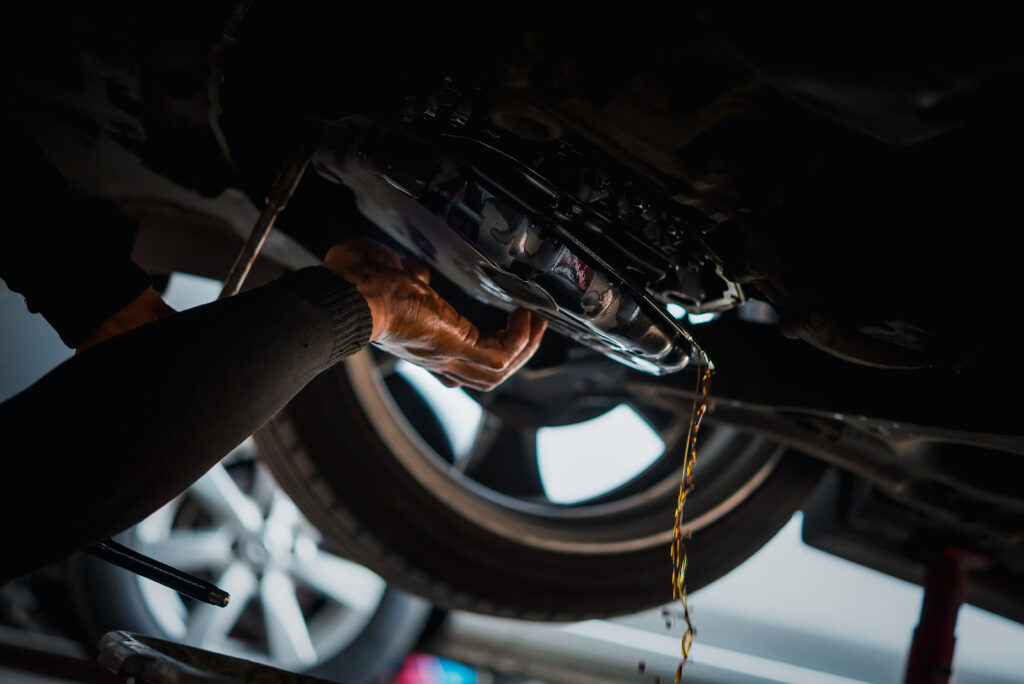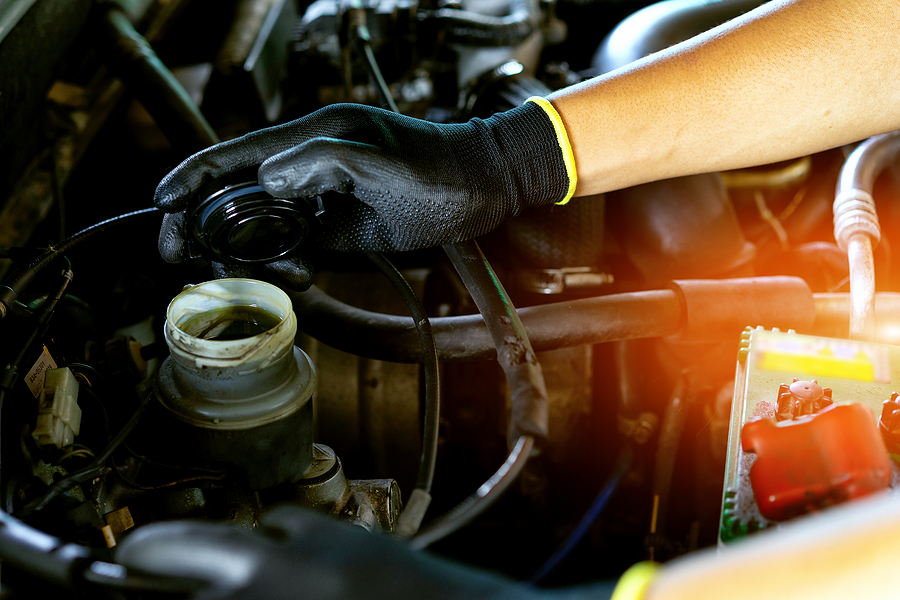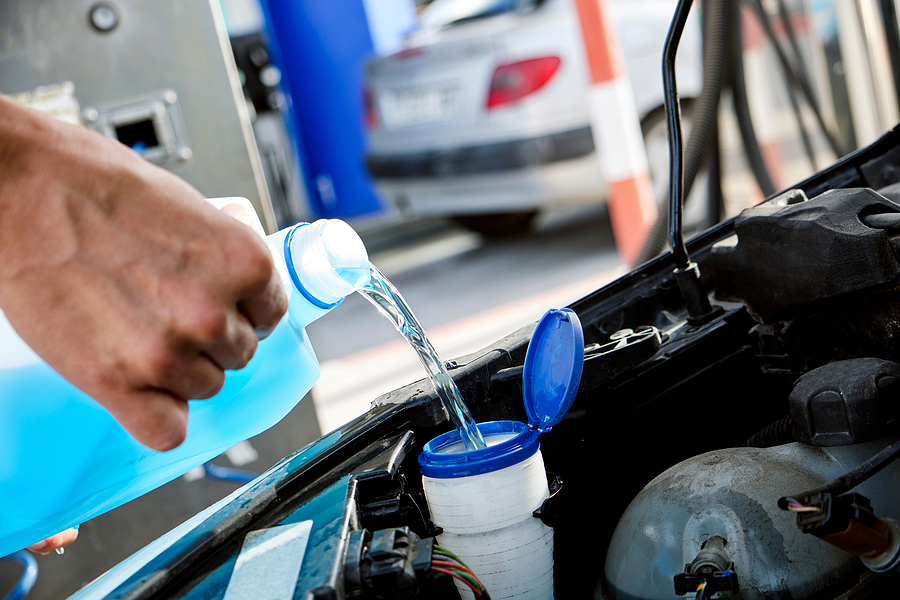Many people use the terms transmission fluid and differential fluid interchangeably, but the two automotive fluids are actually quite different. In fact, knowing the difference is a critical part of good car care. Not sure which fluid your car takes? Always thought they were the same thing? Confused on which fluids your vehicle needs?
Continue reading to learn the difference between transmission fluid and differential fluid, how these fluids work, and more.

Differential Fluid and Transmission Fluid Are Not the Same
When it comes to differential and transmission fluid, there are many differences, but they all lie under the primary difference that separates the two most distinctively: application. Differential and transmission fluid are two different automotive fluids primarily because they serve two difference functions. One fluid is for vehicles with manual gearboxes and the other for automatic transmission vehicles. Which one is which? Let’s take a closer look.
Differential Fluid
Differential fluid, also known as gear oil, is designed for vehicles with manual gearboxes controlled by a clutch, pedal, and stick shift. Manual gearboxes are designed as a two-shaft system, and although this design gives manual cars more oomph, it produces an enormous amount of heat and friction. Differential fluid helps lubricate the inner moving components, thus supporting a smoother operation and protecting the engine from damage.
Key Attributes of Gear Oil:
▶ Thicker Viscosity
▶ Higher Heat Resistance
▶ High Pressure Resistance
Transmission Fluid
Opposite of differential fluid, transmission fluid is designed to work specifically with automatic transmission vehicles. Because automatic transmissions operate at lower degrees of heat and friction, they require a different level of lubrication. Transmission fluid is designed with unique properties that adequately lubricate the engine and support transfer of power.
Key Attributes of Transmission Fluid:
▶ Thinner/Lower Viscosity
▶ Lower Degree of Heat Resistance
▶ Anti-Foaming Technology
FAQS About Transmission and Differential Fluid:
Can You Use Transmission Fluid in Place of Differential Fluid?
In emergency situations, you can put transmission fluid in your differential, but beware of the lower degree of viscosity compared to differential fluid. Your vehicle will burn through it quickly, so change it out or replace it with the right fluid as soon as possible.
Can I Use Engine Oil Instead of Differential Fluid?
Never, under any circumstances, put engine oil in your differential. This will result in devastating damages to your engine. Engine oil is much different than gear oil, mostly it cannot withstand high pressure. Therefore, engine oil should never be used in place of gear oil.
Will Something Bad Happen if I Use the Wrong Car Fluid?
There are damaging effects of using the wrong fluid in your car. Your vehicle might experience engine overheating, transmission breakdown, and internal engine damage. If you believe you put the wrong -fluid in your car or truck, consult with a licensed mechanic in Carmel, IN right away.
Does your car engine or transmission need some professional attention? Contact Autohaus Dierolf at 317-571-0800 for transmission repair and engine repair service in Carmel, Indiana. We are German factory trained mechanics who specialize in European auto service. Request a free estimate, anytime.
Related Posts:
Transmission Repair Solutions for European Car Owners
The Seven Essential Automotive Fluids Every Vehicle Needs
FAQS About Car Engine Flushes




